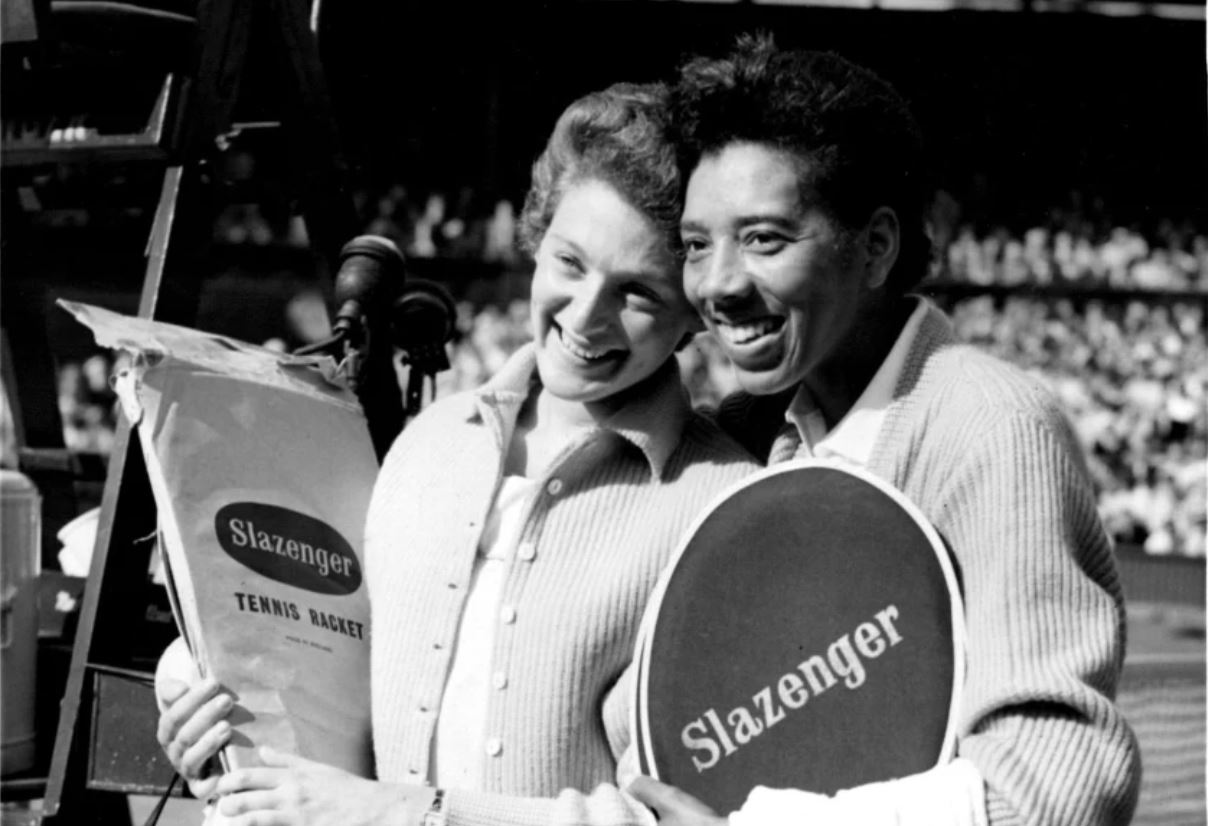They were both outsiders in the starched white world of elite 1950s tennis, superb players but excluded from tournaments and clubs and shunned on the circuit because of their heritage. Angela Buxton, a white, Jewish Englishwoman, was a granddaughter of Russian Jews who had fled the pogroms in the early 1900s; Althea Gibson, a black American, was born in a sharecropper’s shack in South Carolina and grew up in Harlem.
They eventually found each other and forged a powerful doubles partnership. In 1956, they won the French Championships and Wimbledon, the jewel in the crown of a sport that had hardly welcomed them.
But for all Buxton’s prowess on the court — she was ranked in the women’s top 10 in the mid-1950s — she is best remembered for the long-lasting support and encouragement she gave Gibson, the first great black player in women’s tennis, the first black to win Wimbledon and, for a time, the No. 1 ranked female player in the world.
Buxton died at 85 on August 14 at her home in Fort Lauderdale, Florida, the International Tennis Federation announced.
When Buxton and Gibson met at a tournament in New Delhi in 1955, Gibson was so discouraged by the barriers she faced as the only black player in the top echelons of tennis that she was ready to give up the game.
“When I came on the scene, the other players wouldn’t speak to Althea much less play with her quite simply because she was black,” Buxton told Sally Jacobs, author of a forthcoming biography of Gibson. “She was completely isolated,” she added. “I was, too, because of being Jewish. So it was a good thing we found one another.”
Read the obituary in The Age (New York Times).

